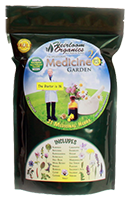|
Home > Guides > Herbs > Garlic |
|
How to Grow Garlic | Guide to Growing Garlic |
|
|
|
|
| |
 |
|
Overview |
|
|
|
|
|
| |
|
| |
Easy to grow and productive - a pound of cloves can produce 7 to 10 pounds of garlic - the “stinking rose” needs rich, well-drained soil, full sun and excellent weed control. |
|
| |
|
|
| |
|
|
| |
|
|
|
|
|
|
|
|
|
Well Drained, High Fertility |
|
|
|
|
|
|
|
|
|
|
|
|
Growing Guide
GROWING NOTES
Well-drained, fertile, with plenty of organic matter. Slightly dry sites preferable. Tolerates wide pH range but prefers slightly acid soil (6.2 to 6.8).
Perennial grown as an annual. (Fall-planted, harvested the following summer.)
Easy if you have rich well-drained soil and good weed control.
MAINTAINING
Garlic prefers cool weather when developing foliage, and warm weather when bulbs enlarge. Fall plantings take about 8 months to mature.
Choose a weed-free, well-drained location. Raised beds are ideal. Do not plant where other onion family crops have been grown in the past 3 years.
In New York, plant from about the time of first fall frost to early November. If your soil is loose and well-prepared, you can plant in very early spring, but fall plantings usually yield more.
Using cloves from the supermarket is not recommended. They may carry diseases or have been treated to discourage sprouting. Most are also from varieties that are not well-adapted to New York's climate. Purchase bulbs from mail order suppliers, garden center, or other local source.
Break bulbs apart at planting time, keeping papery husks on the individual cloves. Plant with tips up, 2 inches deep and 4 to 6 inches apart in rows 15 to 24 inches apart. Plant elephant garlic varieties about 3 inches deep and 8 to 12 inches apart.
Mulch heavily after planting to prevent soil heaving - particularly with less-hardy elephant garlic varieties. Roots will begin to grow even though topgrowth may not be evident in late fall and winter. Remove mulch in spring, leaving only what is needed to suppress weeds.
For larger bulbs, remove woody flower stalks (scapes) as they appear. Bulblets at top of scape can be used in cooking.
Plant large cloves to produce the largest bulbs. Plant smaller cloves at closer spacings or in patches for harvest as garlic greens. Save largest bulbs for planting your next crop.
|
|
| |
|
| |
Heirloom seeds are the gardeners choice for seed-saving from year-to-year. Learning to save seeds is easy and fun with these books. Before you harvest, consider which varieties you might want to save seeds from so that your harvesting practice includes plants chosen for seed saving. Be sure to check out our newest seed packs, available now from Heirloom Organics. The Super Food Garden is the most nutrient dense garden you can build and everything you need is right here in one pack. The Genesis Garden s a very popular Bible Garden collection. The Three Sisters Garden was the first example of companion planting in Native American culture. See all of our brand-new seed pack offerings in our store.
|
|
| |
|
|
| |
Harvesting Guide
HARVESTING
Prepare to harvest your garlic crop in late July and throughout August. Depending on the weather, the exact harvest time can vary, so it is important to keep an eye on the plants.
Stop watering the plants a few weeks before harvest time. You will need to watch for the browning of the plant leaves. When approximately 50% of the leaves have turned brown you should stop watering the plants.
Spread in a suitable spot for drying. If the weather is wet, dry indoors or in a greenhouse. The drying process takes between one and two weeks.
Separate any soft or unhealthy-looking bulbs from the healthy ones. They will not keep, and if you store them among the dried bulbs the dampness may spoil the other bulbs.
Store your dried bulbs on trays, tie them together with string or braid them together and hang them. Store them in a cool, dry place.
SAVING SEEDS
Once you have a garlic variety, you need never order it again. (If you can refrain from eating it all!) No cross-pollination happens with garlic. The cloves will produce bulbs just like the ones from which they came. The best way to store garlic over winter is out of direct sunlight in even conditions of temperature and humidity. Hang them in bunches or braids or keep them in open baskets but don't store them in the fridge or in closed containers.
|
|
| |
|
|
|
| |
|
|
|
|
|
| You can find this variety in the following Seed Packs: |
|
 |
|
| Click the packs below to see some of our other wonderful products |
|
|
|
|
|
|
|